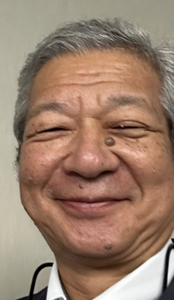Abstract
Reactive oxygen species (ROS), which are inevitably produced by oxygen respiration for life to gain energy, are essential signaling molecules at normal levels but overproduced ROS oxidizes cellular proteins, lipids, and genes and causes various diseases. Natural antioxidants such as vitamins C and E and various synthetic antioxidants have been developed to reduce the involvement of ROS in diseases. Still, none of them achieved a remarkable medicinal effect. We have designed amphiphilic block copolymers in which antioxidant moieties were covalently introduced in the hydrophobic segment. The obtained block copolymer spontaneously forms polymer micelles in an aqueous solution. By covalently introducing a low molecular weight antioxidant into a molecular assembly using a high molecular weight micelle as a platform, we avoid toxicity and suppress inflammation. Since the designed nanoparticle type antioxidant (abbreviated as RNP) significantly reduces their toxicity, it shows a remarkable therapeutic effect on various oxidative stress-related diseases such as cerebral, cardiovascular, renal ischemia-reperfusion injuries, cancer, Alzheimer's disease, and ulcerative colitis. Here, we have found that antioxidant nanoparticles localized in the gastrointestinal tract ameliorated stress-induced depression and athletic performance by eliminating gastrointestinal ROS by oral administration. For example, in stress-induced depression model mice, intense inflammation of the gastrointestinal tract was induced, but the oral administration of RNP strongly suppressed it. As a result, the increase in stress hormones in the blood and the level of the neurologically-related proteins in the brain were suppressed, and the condition of depression was improved . When mice were forced to run on the treadmill until they could no longer run, their GI tract was damaged significantly. After oral administration of RNP, the intestinal damage was recovered significantly, and the running time was extended by 40-50% compared to normal mice . Therefore, we conclude that the effective elimination of ROS that is overproduced in the GI tract is extensively involved in maintaining health.
The depression experiments have been done by Mr. Naoki Saigo and Dr. Yutaka Ikeda. The exercise experiments were done by Dr. Takuto Toriumi. The author appreciates their collaboration.
Yukio Nagasaki, PhD
Department of Materials Science
University of Tsukuba

Yukio Nagasaki, PhD
Education
1987 Ph.D., Department of Industrial Chemistry. Science University of Tokyo, Shinjuku, Tokyo, Japan.
1982 B.A., Department of Industrial Chemistry, Science University of Tokyo, Shinjuku, Tokyo, Japan
Professional Carrier
Visiting Chair Professor, The High-value Biomaterials Research and Commercialization Center (HBRCC; Director: Professor Hsu-Wei Fang), the National Taipei University of Technology (Taipei Tech), 2023-present
Adjunct Professor Department of Chemistry, Graduate School of Science, The University of Tokyo, 2022-present
Principal Investigator, Center for Research in Radiation, Isotopes and Earth System Science (CRiES), 2013-present
Principal Investigator, International Center for Materials Nanoarchitectonics Satellite (MANA), National Institute for Materials Science (NIMS), 2007-2017
Adjunct Professor, Master's School of Medical Sciences, Graduate School of Comprehensive Human Sciences, University of Tsukuba, 2007-present
Professor, Department of Materials Science, Graduate School of Pure and Applied Science, University of Tsukuba, 2004-present
Visiting Researcher, Department of Polymer Science and Engineering, University of Massachusetts, 1992-1993
Professor, Associate Professor, Research associates, Department of Materials Science, Science University of Tokyo, Japan, 1989-2004
Distinction
2011 SPSJ Mitsubishi Chemical Award
2013 Rising Sun in Asia (Controlled Release Society)
2014 The Award of Japanese Society for Biomaterials
2015 The Award for the Japanese Society of Ulcer Research
2015 The Nagai Award from The Japan Society of Drug Delivery System
2017 Polymer Society Award, Japan
2020 Fellow, Biomaterials Science & Engineering (Society for Biomaterials)
2021 Fellow, The Society for Polymer Science, Japan
Selected Recent Publications
1. Babita Shashni, Yukio Nagasaki, Self-Assembling Butyric Acid Prodrug Acts as a Sensitizer for Cancer Radiotherapy, Nano Today, 54 (2024) 102103. (doi: 0.1016/j.nantod.2023.102103)
2. Yutaka Ikeda Naoki Saigo Yukio Nagasaki Direct evidence for the involvement of intestinal reactive oxygen species in the progress of depression via the gut-brain axis Biomaterials 295 (2023) 122053 (doi: 10.1016/j.biomaterials.2023.122053).
3. Takuto Toriumi, Hajime Ohmori, Yukio Nagasaki, Design of antioxidant nanoparticle, which selectively locates and scavenges reactive oxygen species in the gastrointestinal tract, increasing the running time of mice, Advanced Science, 2301159 (2023) (doi: 10.1002/advs.202301159).
